Be your Logistics Department in China
Customized logistics solutions, your logistics expert in China
Customized logistics solutions, Shipping from China to the World
Tel:+8613424475220 Email:info@viputrans.com 
Import and export international certification
Export certification is an endorsement of trade trust. For many foreign trade practitioners, product export certification is as complex and changeable as the current international trade environment.
Different target markets and different product categories require different certifications and standards. .
International Certification
01 - IECEE-CB;
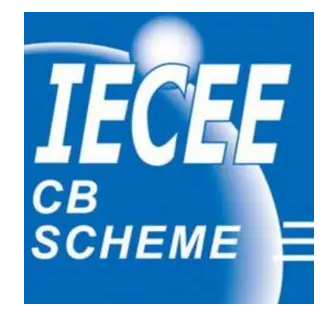
The Chinese meaning of the IECEE-CB system is "Mutual Recognition System for Electrical Product Test Certificates".
This system is a system in which members participating in the CB system obtain national certification or approval based on mutual recognition (two-way acceptance) of test results, thereby achieving the purpose of promoting international trade.
Currently, 54 member countries and more than 60 national certification body members participate in the CB system.
02 - ISO9000
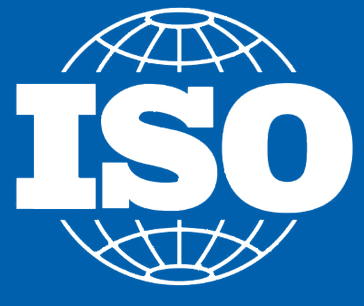
The International Organization for Standardization is the world's largest non-governmental standardization agency and plays a leading role in international standardization.
The ISO9000 standard is issued by the International Organization for Standardization (ISO), implements the GB/T19000-ISO9000 family of standards, carries out quality certification, coordinates standardization work worldwide, organizes information exchanges among member states and technical committees, and communicates with other international organizations Cooperate and jointly study related standardization issues.
03 - GMP
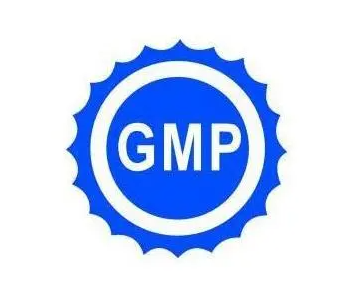
GMP is the abbreviation of Good Manufacturing Practice (Good Manufacturing Practice), which is a management that pays special attention to food hygiene and safety in the production process.
Briefly speaking, GMP requires food production companies to have good production equipment, reasonable production processes, perfect quality management and strict testing systems to ensure that the quality of the final product (including food safety and hygiene) meets regulatory requirements.
The contents stipulated by GMP are the most basic conditions that food processing enterprises must meet.
04 - HACCP
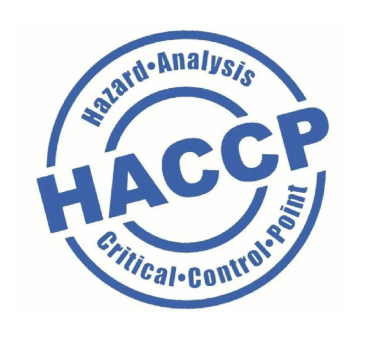
The HACCP system is considered the best and most effective management system for controlling food safety and flavor quality.
The national standard GB/T15091-1994 "Basic Terminology for the Food Industry" defines HACCP as: a control method for producing (processing) safe food; analyzing raw materials, key production processes and human factors that affect product safety, and determining the processing process Establish and improve monitoring procedures and standards, and take standardized corrective measures as key links in the process.
The international standard CAC/RCP-1 "General Principles of Food Hygiene 1997 Revision 3" defines HACCP as: a system for identifying, evaluating and controlling hazards that are critical to food safety.
05 - EMC
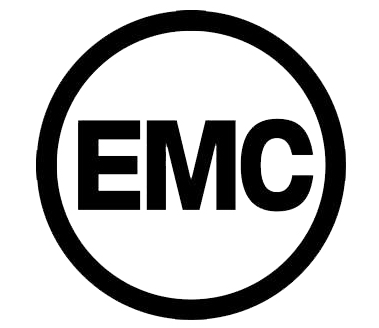
The electromagnetic compatibility (EMC) of electronic and electrical products is a very important quality indicator.
It is not only related to the working reliability and safety of the product itself, but also may affect the normal operation of other equipment and system 。Protection issues of the electromagnetic environment.
The European Community government stipulates that from January 1st, 1996, all electrical and electronic products must pass EMC certification and be affixed with the CE mark before they can be sold in the European Community market.
This move has caused widespread impact in the world, and governments around the world have taken measures to implement mandatory management of the RMC performance of electrical and electronic products. Internationally influential ones, such as EU 89/336/EEC, etc.
06 - IPPC
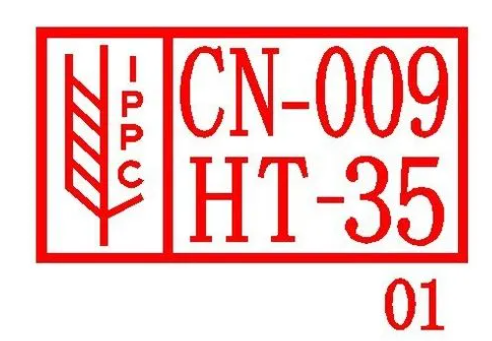
IPPC logo, the international standard for quarantine measures for wooden packaging. The IPPC logo is used to identify wooden packaging that meets IPPC standards, indicating that the wooden packaging has been processed by IPPC quarantine standards.
In March 2002, the International Plant Protection Convention issued the International Standard for Phytosanitary Measures Publication No. 15 "Guidelines for the Management of Wood Packaging Materials in International Trade", referred to as International Standard No. 15, which is the International Standard for Quarantine Measures for Wood Packaging.
The IPPC logo is used to identify wooden packaging that meets IPPC standards, indicating that the target packaging has been processed by IPPC quarantine standards.
European certification
01- CE
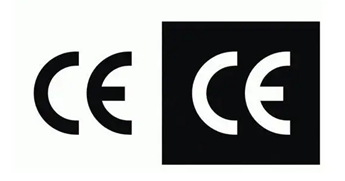
CE stands for CONFORMITE EUROPEENNE, which is a safety certification mark that is regarded as a passport for manufacturers to open and enter the European market.
Products with the CE mark can be sold in all EU member states, realizing the free circulation of goods within the EU member states.
Products sold in the EU market that require CE marking include the following:
1. Electrical products
2. Mechanical products
3. Toy products
4. Radio and telecommunications terminal equipment
5. Refrigeration and freezing equipment
6. Personal protection equipment
7 , simple pressure vessels
8, hot water boilers
9, pressure equipment
10, pleasure boats
11, construction products
12, in vitro diagnostic medical devices
13, implantable medical devices
14, medical electrical equipment
15, lifting equipment
16, gas equipment
17, non- Automatic weighing instrument.
02 - RoHS certification (EU electronic and electrical appliances)
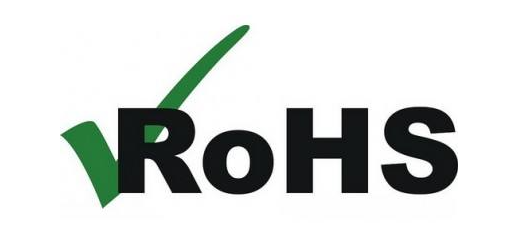
RoHS is a mandatory standard formulated by EU legislation. The standard was officially implemented on July 1, 2006. It is mainly used to standardize the material and process standards of electronic and electrical products to make them beneficial to human health and environmental protection.
Applicable products and regions: 27 EU member states:
United Kingdom (exiting the EU in 2020), France, Germany, Italy, Netherlands, Belgium, Luxembourg, Denmark, Ireland, Greece, Spain, Portugal, Austria, Sweden, Finland, Cyprus, Hungary, Czech Republic, Estonia, Latvia, Lithuania, Malta, Poland, Slovakia, Slovenia, Bulgaria, Romania.
The RoHS Directive covers electronic and electrical products listed in AC1000V and DC1500V:
1. Large household appliances: refrigerators, washing machines, microwave ovens, air conditioners, etc.
2. Small household appliances: vacuum cleaners, electric irons, hair dryers, ovens, clocks, etc.
3. Computers and communication equipment: computers, fax machines, telephones, mobile phones, etc.
4. Civilian equipment: radios, televisions, video recorders, musical instruments, etc.
5. Lighting equipment: fluorescent lamps other than household lighting, lighting control devices
6. Power tools: electric drills, lathes, welders, sprayers, etc.
7. Toys/entertainment, sports equipment: electric vehicles, game consoles, automatic game consoles, etc.
8. Medical equipment: radiotherapy equipment, electrocardiograph, analytical instruments, etc.
9. Monitoring/control devices: smoke detectors, incubators, factory monitoring machines, etc.
10. Vending machines
11. Semiconductor equipment. It includes not only complete products, but also parts and components used to produce the complete machine. Raw materials and packaging are related to the entire production chain.
03 - UKCA certification (UK)
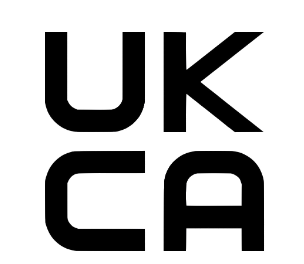
UKCA is the abbreviation of UK Conformity Assessed.
On February 2, 2019, the British government announced that it would adopt the UKCA marking scheme in the event of a no-deal Brexit. After March 29, trade with the UK will be conducted in accordance with the rules of the World Trade Organization (WTO). The UKCA mark is the same as the CE mark.
The manufacturer is responsible for ensuring that the product meets the standards stipulated in the law, and after making a self-declaration in accordance with the prescribed procedures, the manufacturer will make the corresponding mark on the product.
Most products currently under the control of the CE mark must be affixed with the UKCA mark if they are to be exported to the British market (England, Wales and Scotland) in the future. The UKCA mark does not apply to products entering Northern Ireland.
04 - GS certification (Germany)

The GS (Geprufte Sicherheit) mark is a safety certification mark issued by organizations such as TÜV and VDE authorized by the German Ministry of Labor.
It is a safety mark accepted by European customers. Generally, GS certified products have a higher unit price and are more popular.
Products that need to apply for GS certification include:
1. Household appliances, such as refrigerators, washing machines, kitchen appliances, etc.;
2. Household machinery;
3. Sports supplies;
4. Household electronic equipment, such as audio-visual equipment;
5. Electrical and electronic offices Equipment, such as copiers, fax machines, shredders, computers, printers, etc.;
6. Industrial machinery, experimental measurement equipment;
7. Other safety-related products, such as bicycles, helmets, ladders, furniture, etc.
05 - TÜV certification (German components)
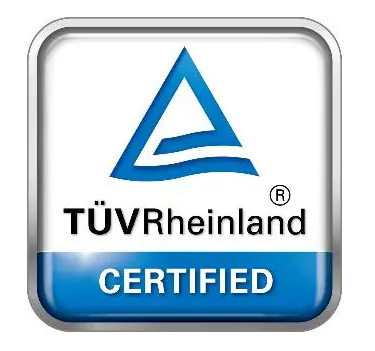
The TÜV mark is a safety certification mark customized by TÜV Germany for component products and is widely accepted in Germany and Europe.
When an enterprise applies for the TÜV mark, it can apply for a CB certificate together and obtain certificates from other countries through conversion.
In addition, after the products pass certification, the association will recommend these products to those who inquire about products through the association; during the whole machine certification process, all components that have obtained the TÜV mark are exempt from inspection.
06 - VDE certification (German Electric)
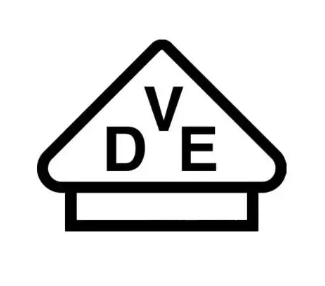
As an internationally recognized safety testing and certification organization for electronic equipment and parts, VDE enjoys a high reputation in Europe and even internationally.
The range of products evaluated includes household and commercial appliances, computer equipment, industrial and medical technology equipment, installation materials and electronic components, wires and cables.
Applicable products:
1. Electronic equipment, machinery
2. Toys
3. Contact with human body (kitchenware, beauty care)
4. Optical products (sunglasses/3D/VR, laser, infrared type)
5. Products with health care functions (knee pads, foot pads) Pads, abdominal gel, belts, anti-snoring belts, good backs, massagers, wheelchairs, electric wheelchairs, etc.)
6. Bluetooth
7. CDs, books and other cultural audio and video products
America certification
01 - FCC (USA)
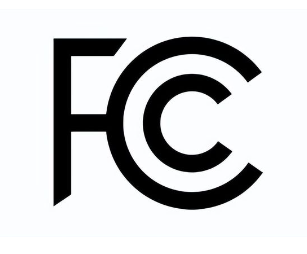
The FCC coordinates domestic and international communications by controlling radio broadcasting, television, telecommunications, satellites, and cable. Covers all 50 U.S. states, Columbia, and U.S. territories.
Many radio application products, communication products and digital products require FCC approval to enter the US market.
Compulsory certification, electronic and electrical products exported to the United States must pass FCC certification;
Common product ranges: home appliances, lamps, audio products, communication products, IT equipment, security products, mechanical products, toys, etc.;
Certificate validity period: valid for a long time.
02 - FDA (USA)
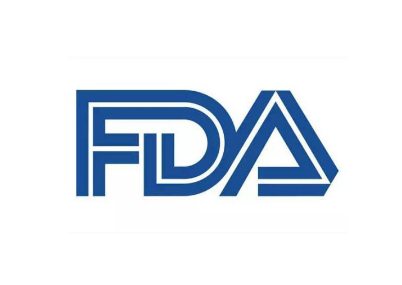
The U.S. Food and Drug Administration, referred to as FDA, is responsible for ensuring the safety of food, cosmetics, drugs, biological agents, medical equipment and radioactive products produced or imported into the United States;
Compulsory certification, products must complete FDA registration or FDA testing before they can be exported to the United States;
Common product ranges: food, medical device products, cosmetics, radiation, laser electronic products (NTEK), nutritional health products, Chinese herbal medicines and patent medicines, and nursing and health care equipment, etc.;
Certificate validity period: Different product categories have different validity periods;
03 - UL (USA)
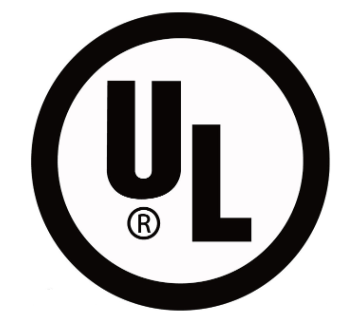
Abbreviation for certification by Underwriters Laboratories. UL Safety Testing Institute is the most authoritative in the United States and the largest private institution engaged in safety testing and identification in the world. It is an independent, for-profit, professional organization that conducts experiments for public safety;
Non-mandatory certification is mainly testing and certification of product safety performance, and its certification scope does not include the EMC (electromagnetic compatibility) characteristics of the product;
Common product ranges: food and beverages, medicines, nutritional products, personal care products, toys, daily commodities, daily chemicals, kitchen supplies, electronic and electrical products, furniture, clothing and textiles, footwear and leather goods, etc.;
Certificate validity period: Factory inspections are conducted about 1-4 times a year, and the enterprise needs to accept and pay audit fees or file maintenance fees;
04 - CPC (USA)
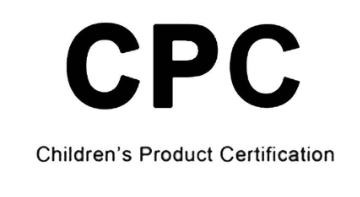
The CPC certificate is similar to a domestic quality inspection report. It is a certificate that can be issued after passing relevant tests and issuing a report. The certificate lists the importer/exporter information, product information, and related test items that have been done and their basis. regulatory standards;
Mandatory certification. The Amazon platform will require merchants to upload CPC certificates when launching certain categories of products (such as children's toys, baby products, etc.). Related children's products without CPC certificates may not be sold online;
Common product range: children's products (consumer products designed for children 12 years old or younger, or consumer products 12 years old or younger as the main user);
Certificate validity period: If there is continuous production, no material changes must be carried out at least once a year for periodic testing;
05 - DOE (USA)
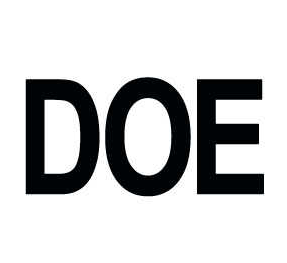
DOE, the U.S. Department of Energy, is an energy efficiency certification issued based on relevant U.S. electrical and electronic regulations. The main role of DOE certification is to improve the use efficiency of electronic and electrical products, save energy, and reduce energy waste, thereby reducing energy consumption demand, reducing the greenhouse effect, etc.;
Mandatory certification (U.S. Department of Energy), products in the list must be DOE certified, such as chargers, power adapters, TVs, refrigerators, air conditioners, etc.;
Common product range: all external power supplies that work directly, such as mobile phone chargers, USB power strips, Bluetooth devices and other products with small-capacity batteries, home appliances, kitchen appliances, etc.;
Certificate validity period: Before the battery charger is sold on the market, it needs to be registered and is valid for 1 year. After the one-year validity period, if the manufacturer or importer wants to continue selling this product, it must re-register the product;
06 - DOT (USA)
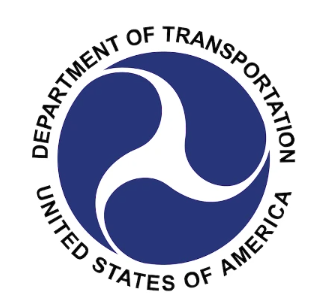
DOT certification is a mandatory certification system implemented by the United States for transportation vehicles and their parts in order to ensure the safety of the country and citizens.
According to the Federal Motor Vehicle Safety Standards (FMVSS), all vehicles and major component products that want to enter the U.S. market must pass the U.S. DOT certification and have corresponding logos printed on the products;
07 - CSA (Canada)
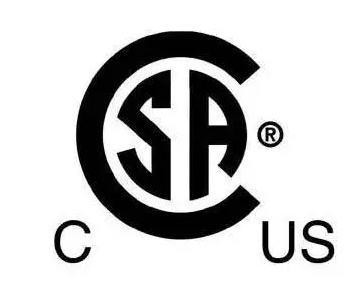
It is the abbreviation of the Canadian Standards Association. It was founded in 1919 and is Canada's first non-profit organization dedicated to formulating industrial standards.
Electronics, electrical appliances and other products sold in the North American market need to obtain safety certification. CSA is currently the largest safety certification agency in Canada and one of the most famous safety certification agencies in the world.
08 - INMETRO (Brazil)
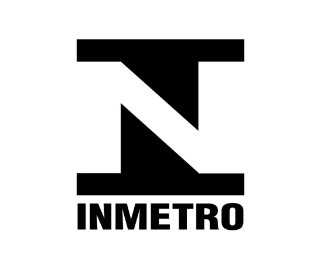
It is Brazil’s national accreditation agency and is responsible for formulating Brazilian national standards. Most of Brazil's product standards are based on IEC and ISO standards. Manufacturers who need to export products to Brazil should refer to these two sets of standards when designing products.
Products that meet Brazilian standards and other technical requirements must bear the mandatory INMETRO mark and the mark of an accredited third-party certification agency before they can enter the Brazilian market.
If you are interested in China import and export shipping services, please feel free to contact us.
Shawn.Liao(Mr.) ,E-MAIL: sales04@viputrans.com;Phone/Wechat:+8618926970495;Whatsapp/Skype: +8613431563558
WCA Member ID No.129936
Copyright © 2003-2026 VIPU Supply Chain Logistics Co., Ltd. | All Rights Reserved
LOGISTICS | E-COMMERCIAL FULFILLMENT | ABOUT US | CASE | NEWS | VIDEO | CONTACT US
We will find the fastest or the cheapest way for your shipment. Please specify: where from, where to, what to ship.